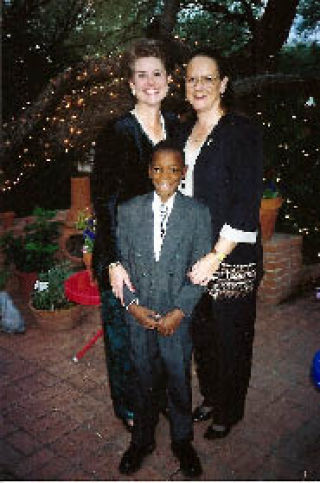Fetal alcohol disorders are considered the leading cause of mental retardation in western civilization – and it’s a problem that is entirely preventable.
Sept. 9 is the 10th Annual International Fetal Alcohol Spectrum Disorders (FASD) Awareness Day, designated to further educate the public about fetal alcohol conditions and lend support to the millions living with the diagnosis and the many parents raising children – often adopted – with FASD.
Jan Crossen is a Lopez Island parent who has written three books based on the life of her adopted son, Joshua, who has FASD. Crossen’s books are works of fiction, but they are inspired by her experiences raising Joshua with her partner, Barbara. The third installment of the “9 Lives” trilogy will be available the week of Sept. 9 and the entire series is available at www.jancrossen.com and amazon.com. Crossen will be a guest on Lopez Library Director Lou Pray’s show on KLOI radio on Wednesday, Sept. 10 at 1 p.m. She will discuss her books and how FASD has impacted her life. Tune into 102.9 or catch the live stream on www.kloi.org.
Crossen’s son Joshua had classic signs of the disorder, such as repeating the same mistakes, blurting things out in class, and not respecting boundaries, but none of the experts mentioned to her that Joshua might have an FASD disability.
“People need to understand that FASD encompasses kids that have a genius IQ and look normal but have behavioral problems to the kids that have full blown FAS – and it’s everything in between,” said Crossen. “In North America, research shows that one out every 100 babies has been exposed to alcohol. It’s much more prevalent than we realize. It’s so amazing there are all these kids that are undiagnosed. These kids don’t understand cause and effect, and parents need to know what is going on so they can provide proper supervision and hopefully keep their children safe and out of trouble. I had Josh for 10 years, but the social workers, adoption agency, educators, therapists, and pediatricians never mentioned that his behaviors could be caused by prenatal exposure to alcohol.”
Joshua was raised primarily in Arizona, and attended high school on Lopez for one year. He is 19 now, and lives in Everett, where he plays the keyboard with a group of musician friends. Crossen decided to write the books because she was “amazed by Joshua’s ability to survive. I thought he had a great, compelling story to tell. I wanted to share his voice, and tell a fictionalized version of his story at a reading level for pre-teens and teens, so they could read the books and make choices that would result in alcohol and drug free babies being born in the future.”
Fetal Alcohol Spectrum Disorders is an umbrella term that includes all disabilities caused by prenatal exposure to alcohol. This includes Fetal Alcohol Syndrome (FAS), Alcohol Related Neurodevelopmental Disorder, and Alcohol Related Birth Defects. There are varying degrees of FAS, but a child with a severe case will have growth deficiency (with height or weight below the 10th percentile), distinctive facial characteristics, and central nervous system damage.
Many individuals with alcohol-related disorders have normal or above normal intelligence and normal physical appearance, but have a wide span of learning and behavioral problems, including impaired memory, difficulty with reading, spelling, and math, being overly sensitive to sensory input, misinterpreting others’ words and actions, repeatedly breaking rules, not learning from mistakes, and giving in to peer pressure. Kids with FAS have a higher rate of mental illness such as depression, dropping out of school, experiencing trouble with the law, engaging in inappropriate sexual behavior, alcohol and drug use, and employment problems.
A 1996 Institute of Medicine report to Congress stated: “Of all the substances of abuse (including cocaine, heroin, and marijuana), alcohol produces by far the most serious neurobehavioral effects in the fetus.”
The FASD Center for Excellence says that all alcohol beverages are harmful for a fetus and that there is no proven safe amount of alcohol use during pregnancy. Pregnant women should refrain from drinking alcohol for the duration of their pregnancy.
For more information about FASD, visit www.fascenter.samhsa.gov and www.come-over.to/FASCRC/.



